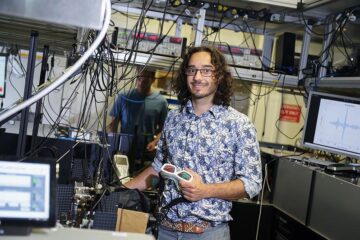Legal and ethical questions about human embryonic stem cell research

„As my university gears up for human embryonic stem cell research,” says Stanford law professor Henry Greely in an Essay for PLoS Medicine, “it finds that a host of ethical and legal questions still need to be answered.”
Some of these questions, says Greely, focus on ethical issues related to donors. For example, given the long life span of human embryonic stem cell lines, and their likely use in clinical practice, will it really be possible to promise donors anonymity? “It seems highly likely,” says Greely, “that the Food and Drug Administration will want as much information as possible about the donor’s health, not only with regard to pathogens that may infect the donated cells but also about diseases with genetic or family links.”
Other questions relate to deriving cell lines (for example how “old” an embryo may be used to make cell lines?), and to the appropriate use of human embryonic stem cells (under what circumstances, for example, is it ethically permissible to create human/nonhuman chimeras?).
Researchers and their institutions, he says, will also have to deal with complicated legal, ethical, and political questions concerning property and stem cells, both intellectual property and “personal” property.
The legal and ethical issues associated with human embryonic stem cell research, says Greely, will impose great and often unprecedented burdens on the researchers, administrators, and even lawyers for any institution that embarks on it. “Coping with these issues will be painful – but not handling them well will be worse, for individual researchers and institutions and for science as a whole.”
Media Contact
Weitere Informationen:
http://www.plosmedicine.org/Alle Nachrichten aus der Kategorie: Biowissenschaften Chemie
Der innovations-report bietet im Bereich der "Life Sciences" Berichte und Artikel über Anwendungen und wissenschaftliche Erkenntnisse der modernen Biologie, der Chemie und der Humanmedizin.
Unter anderem finden Sie Wissenswertes aus den Teilbereichen: Bakteriologie, Biochemie, Bionik, Bioinformatik, Biophysik, Biotechnologie, Genetik, Geobotanik, Humanbiologie, Meeresbiologie, Mikrobiologie, Molekularbiologie, Zellbiologie, Zoologie, Bioanorganische Chemie, Mikrochemie und Umweltchemie.
Neueste Beiträge

Neue universelle lichtbasierte Technik zur Kontrolle der Talpolarisation
Ein internationales Forscherteam berichtet in Nature über eine neue Methode, mit der zum ersten Mal die Talpolarisation in zentrosymmetrischen Bulk-Materialien auf eine nicht materialspezifische Weise erreicht wird. Diese „universelle Technik“…

Tumorzellen hebeln das Immunsystem früh aus
Neu entdeckter Mechanismus könnte Krebs-Immuntherapien deutlich verbessern. Tumore verhindern aktiv, dass sich Immunantworten durch sogenannte zytotoxische T-Zellen bilden, die den Krebs bekämpfen könnten. Wie das genau geschieht, beschreiben jetzt erstmals…

Immunzellen in den Startlöchern: „Allzeit bereit“ ist harte Arbeit
Wenn Krankheitserreger in den Körper eindringen, muss das Immunsystem sofort reagieren und eine Infektion verhindern oder eindämmen. Doch wie halten sich unsere Abwehrzellen bereit, wenn kein Angreifer in Sicht ist?…





















